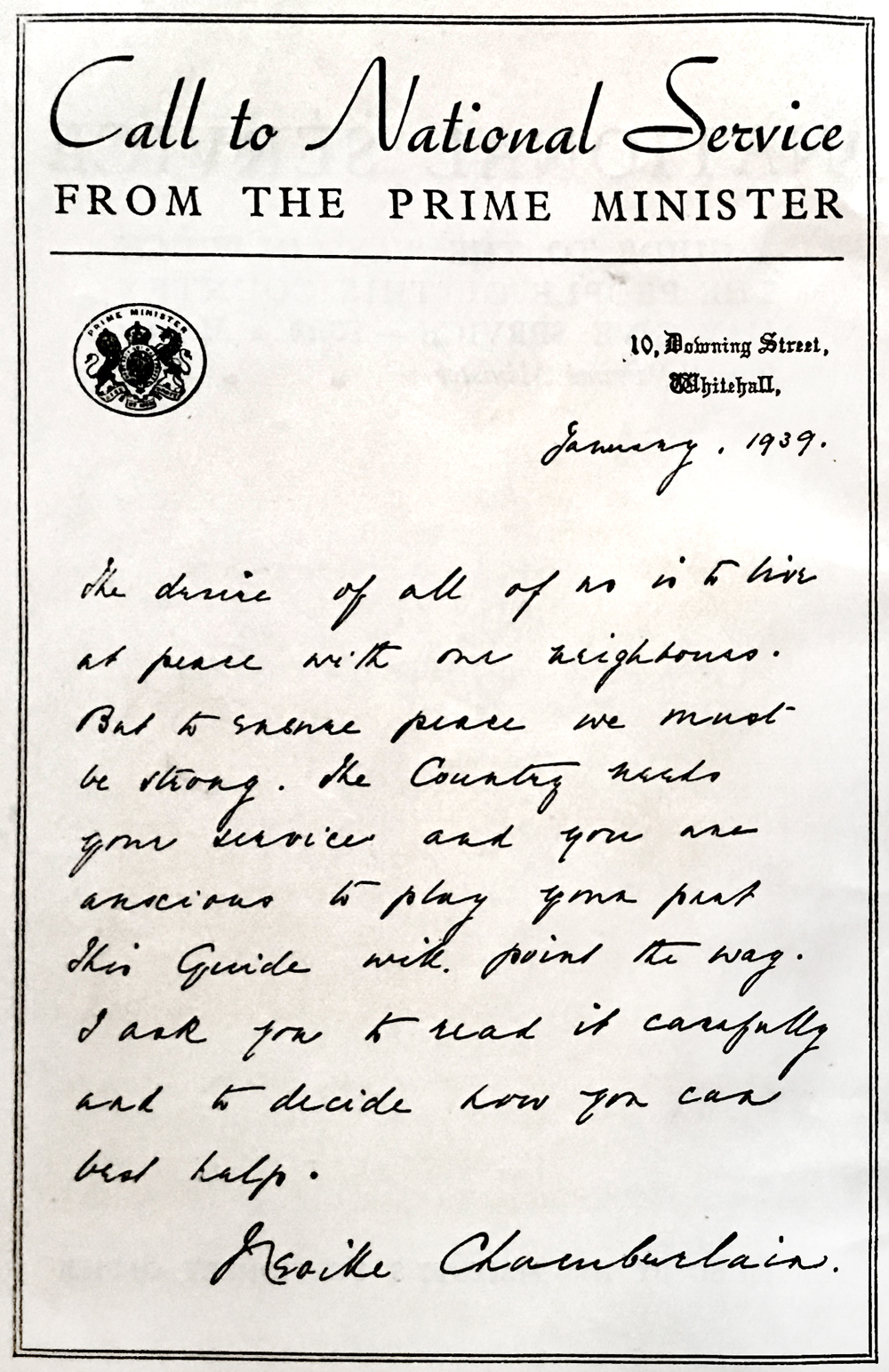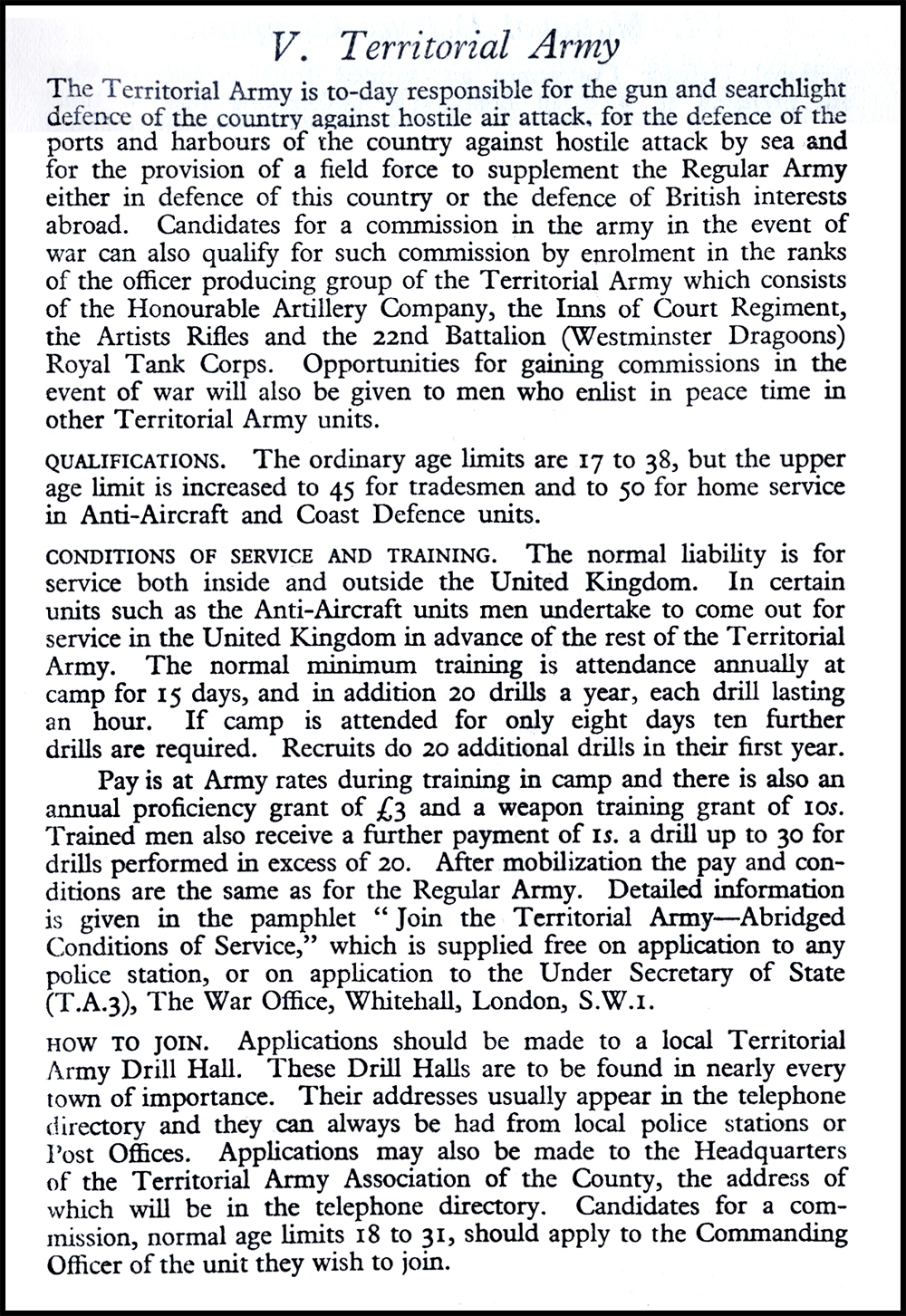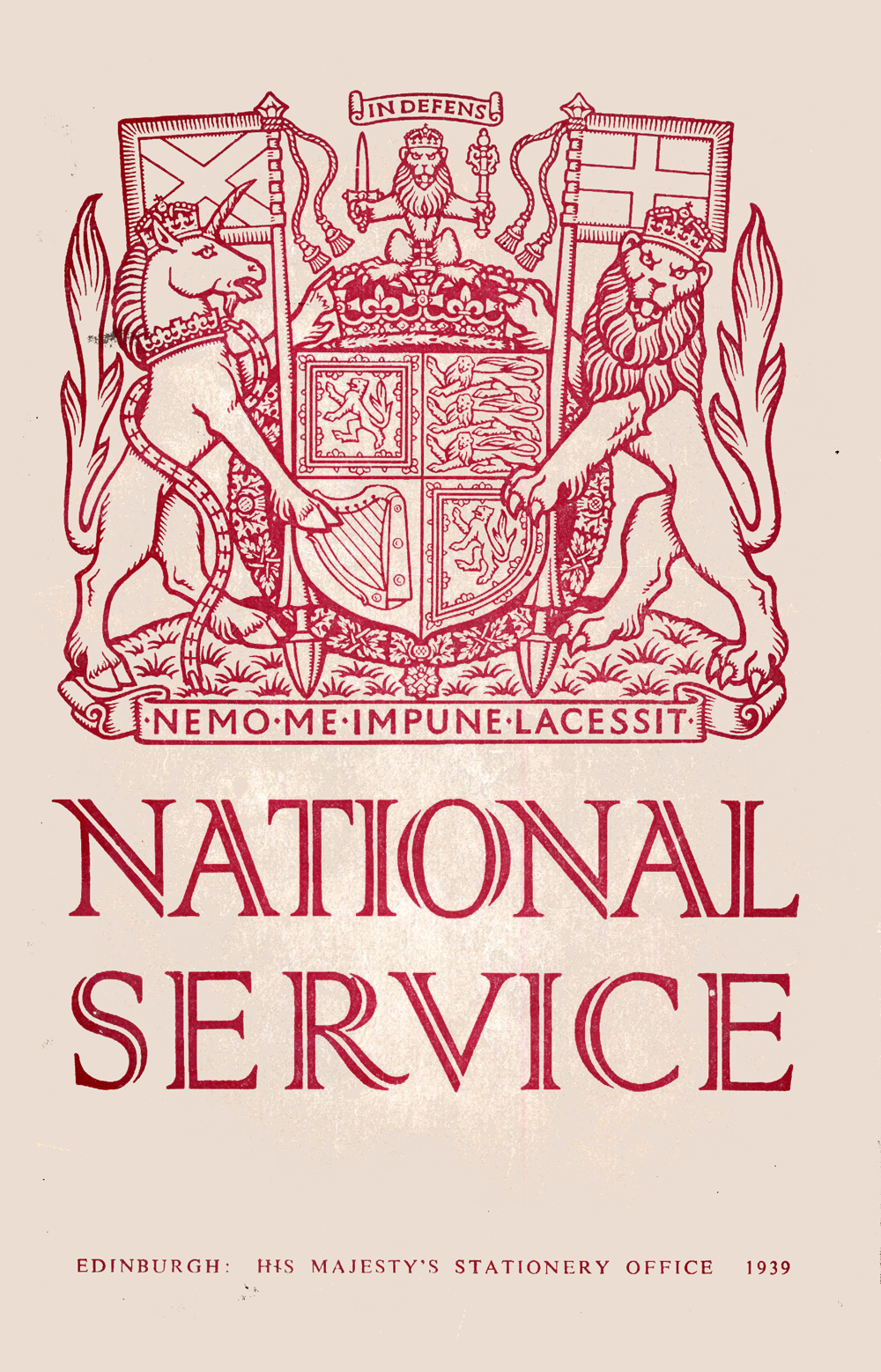John Guthrie – National Service
| < Military Service | Δ Index | Signing up > |
The National Service Programme.
The 1939 National Service Booklet included this “Call to National Service” from the Prime Minister. . .
10 Downing Street, Whitehall, January 1939
“The desire of all of us is to live in peace with our neighbours. But to secure peace, we must be strong. The Country needs your service and you are anxious to play your part. This Guide will point the way. I ask you to read it carefully and to decide how you can best help.”
Neville Chamberlain

It explained the various organizations which accepted volunteers, including the Territorial Army.

Conscription: the Second World War
Conscription: the Second World War – UK Parliament
Limited conscription of men
During the spring of 1939 the deteriorating international situation forced the British government under Neville Chamberlain to consider preparations for a possible war against Nazi Germany.
Plans for limited conscription applying to single men aged between 20 and 22 were given parliamentary approval in the Military Training Act in May 1939. This required men to undertake six months’ military training, and some 240,000 registered for service.
Full conscription of men
On the day Britain declared war on Germany, 3 September 1939, Parliament immediately passed a more wide-reaching measure.
The National Service (Armed Forces) Act imposed conscription on all males aged between 18 and 41 who had to register for service. Those medically unfit were exempted, as were others in key industries and jobs such as baking, farming, medicine, and engineering.
Conscientious objectors had to appear before a tribunal to argue their reasons for refusing to join-up. If their cases were not dismissed, they were granted one of several categories of exemption, and were given non-combatant jobs.
Conscription helped greatly to increase the number of men in active service during the first year of the war.
Conscription of women
In December 1941 Parliament passed a second National Service Act. It widened the scope of conscription still further by making all unmarried women and all childless widows between the ages of 20 and 30 liable to call-up.
Men were now required to do some form of National Service up to the age of 60, which included military service for those under 51. The main reason was that there were not enough men volunteering for police and civilian defence work, or women for the auxiliary units of the armed forces.
National Service – from 1947
National Service – UK Parliament
Demobilisation
In June 1945 the process began of demobilising the thousands of men and women who had served in the forces during the war.
The government had begun preparations for this in 1944 with the Reinstatement in Civil Employment Act which allowed men and women to claim back their old jobs in civvy street, provided their employer was still in business.
Continuing commitments
There was still an urgent need to keep up high levels of military manpower in parts of the world where Britain had strong ongoing commitments – in Germany, Palestine, and India.
The government concluded that these requirements could only be met effectively by continuing National Service in peacetime. This was not, however, popular, especially now that Britain was no longer at war.
It was therefore with difficulty that Clement Attlee’s Labour government persuaded Parliament in 1947 to pass the National Service Act.
National Service in peacetime
It came into force in January 1949 and meant that all physically fit males between the ages of 17 and 21 had to serve in one of the armed forces for an 18-month period.
They then remained on the reserve list for another four years. During this time they were liable to be called to serve with their units but on no more than three occasions, for 20 days maximum.
Students and apprentices were allowed to defer their call-up until they completed their studies or training. Conscientious objectors had to undergo the same tribunal tests as in wartime.
After 1945, however, National Service did not extend to women.
Operations abroad
In 1950 a further National Service Act lengthened the period of service to two years. During the 1950s national servicemen took part in various military operations in Malaya, Korea, Cyprus and Kenya.
National Service ended in 1960, though periods of deferred service still had to be completed. The last national servicemen were discharged in 1963.
| < Military Service | Δ Index | Signing up > |
